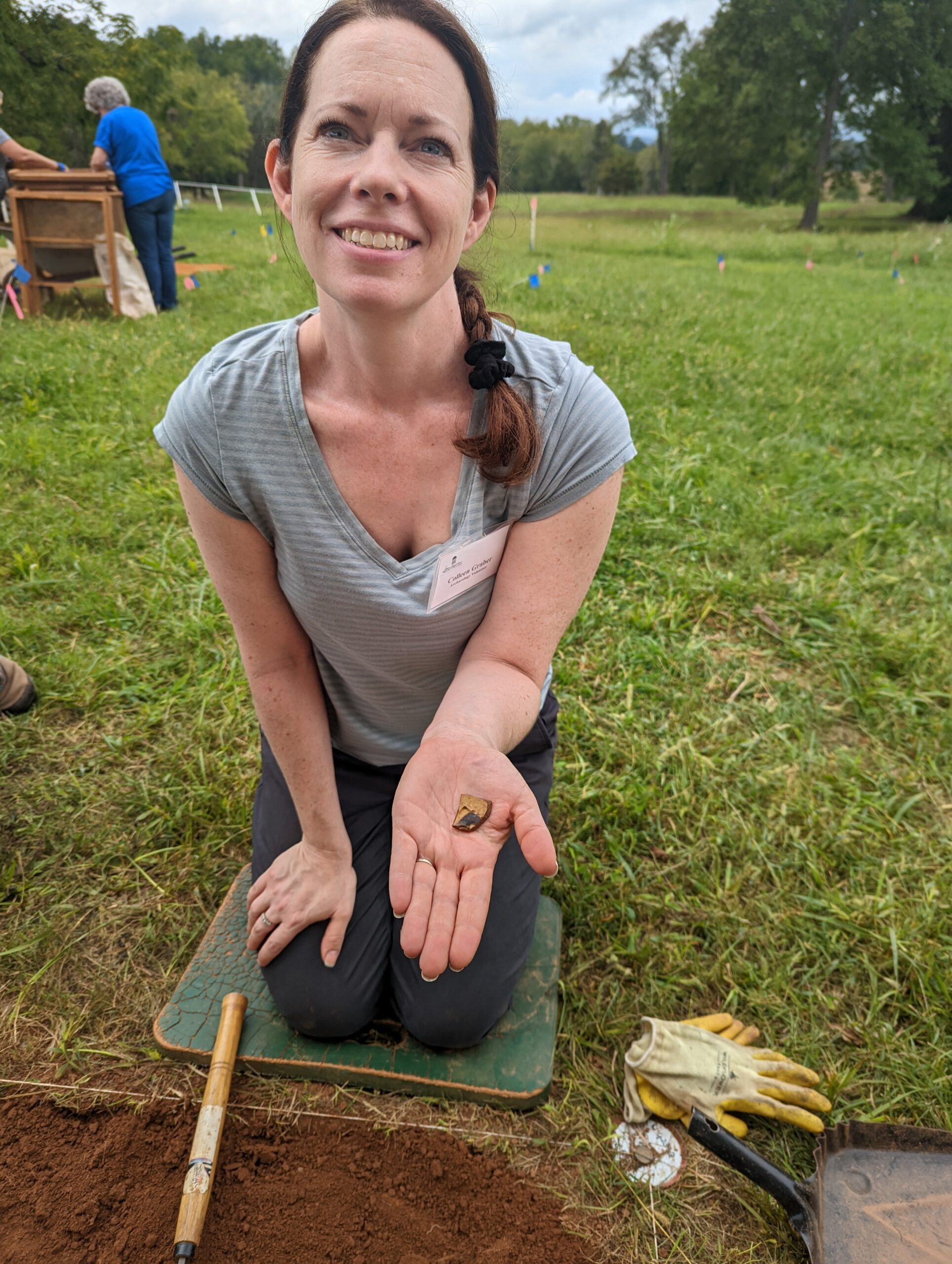PPA’s COO, Colleen Graber, capped her summer by participating in an archaeology program at James Madison’s Montpelier, the home of the fourth president and primary drafter of the Constitution. Here, she summarizes her experience.
Montpelier is one of those places that forces a confrontation with the past and the present simultaneously—the then and now, periods vastly different and yet intimately connected. From the mid-1700s until the family sold it in 1844, the plantation where Madison was born and lived was also the home of hundreds of enslaved people. The contradiction of valuing freedom while also oppressing others—over generations—shadowed me as I walked the grounds and scraped the soil to uncover evidence of daily lives.
My assignment was to dig a small plot at what was thought to be the site of an overseer’s house from the mid-1800s, specifically the section of the home that contained the hearth. The artifacts we found seemed to confirm that: bits of animal bone, charred wood and brick, shards of pottery and glass, and iron nails. Holding in my hands those items was a powerful experience. The way that the site is contending with that past was another.
The museum weathered a tense time in the spring, when long-term efforts to bring representatives of the enslaved persons’ descendants onto the Montpelier board came to a head. Brave staff took a stand and were fired for their support of the descendent community. Fortunately, the new director later rehired them and the new board members took their places at the table. Rather than be deterred from telling the true story, the museum continues to relate a complicated history and the modern-day effects openly through the exhibits, like this one, and tours that engage the participants in discussion. They tell a story about a gifted, pivotal figure in the United States’ journey to democracy and his family, as well as the resilience of the people who demonstrated knowledge and skill, expressed their individuality, and left their own familial legacies.
Months later, I’m still thinking about what I learned at Montpelier, reflecting on how public policy research is also a space where the past and present intersect. In nearly every project, myself and others who do this work reveal the truth about United States inequities and help in our way to take action to correct injustices. By listening to diverse voices, examining data, and proposing paths to better outcomes, we can further the Constitution’s intent to “…promote the general Welfare, and secure the Blessings of Liberty to ourselves and our Posterity…” in the here and now.

